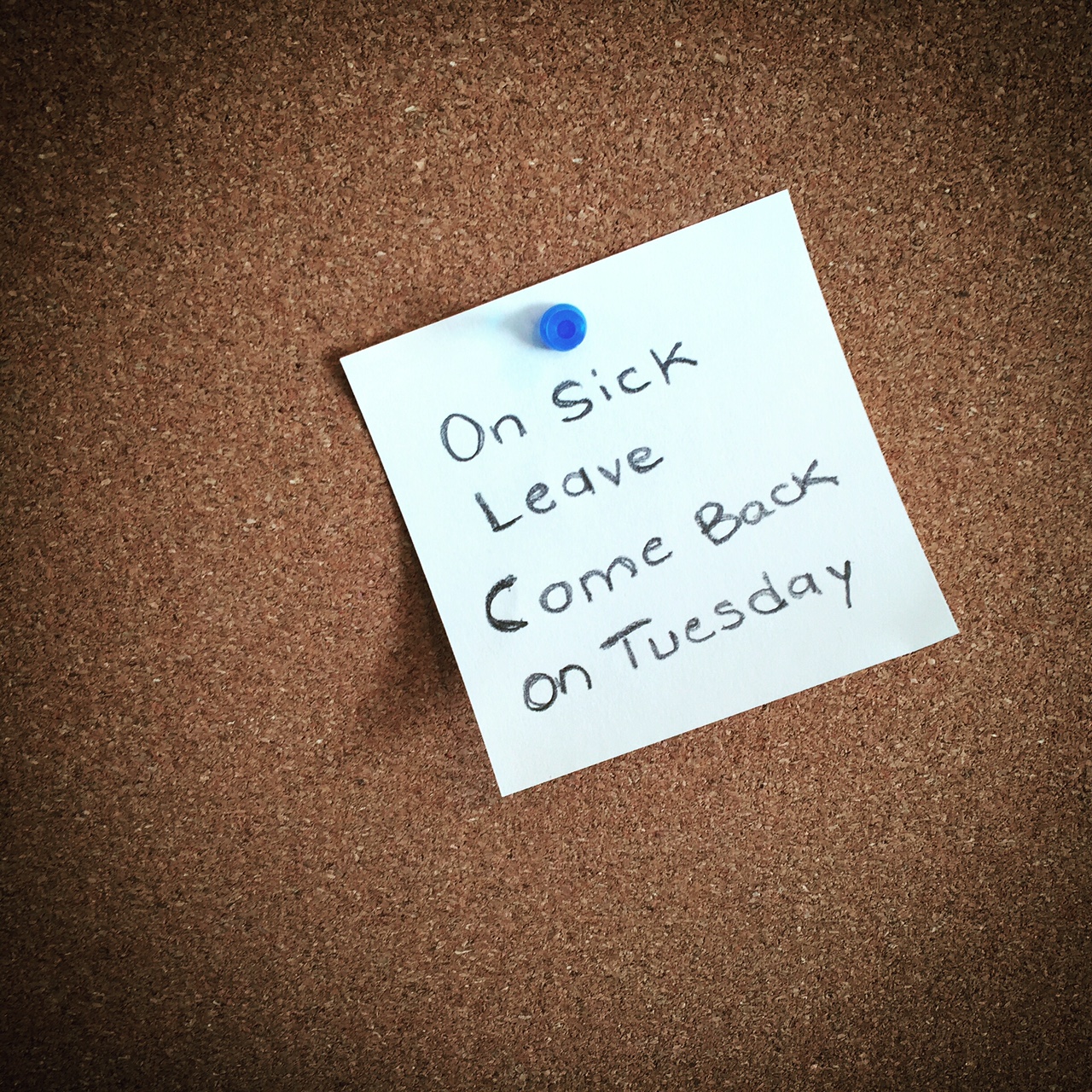- 27January 2016

I was sitting behind my desk facing the main office door when my colleague who had just arrived, froze in the doorway as he looked at me and shouted: "Oh, you are really sick!" referring to my runny nose, feverish red face and watery eyes.
It was Tuesday morning and I spent Monday at home sick (I swear I am not making a fuss out of it. Read "Four Reasons Why You Shouldn't Spend Your Life Alone"). My colleague's surprise was driven by the popular presumption that people who call in sick are never really sick. Having anticipated that, I dragged myself out of bed on that specific Tuesday and showed up to work on purpose despite looking like shit.
-"I didn't doubt it", he apologized as I shook my head with disappointment.
As per the Lebanese Labor Law, employees are entitled to 15 days of sick leave.
Most employees interpret sick leave "as a time for leisure or a day that extends the weekend on either side". I couldn't blame my colleague for thinking that I was one of those people who fake sickness and end up coming back to work all tanned blaming antibiotics' side effects. I am sure sick leave records nationwide, will show that the majority of employees get sick on Monday, Friday or ahead of the holidays.
Besides sick leave, the law grants employees "a minimum of an hour rest that shall be interposed in the middle of the day whenever the duration of work exceeds six hours for men and five hours for women". I won't comment on the gender discrimination in that clause and I am sure women rights advocates have turned a blind eye on that since, for once, women have an advantage over men in Lebanese laws.
For Lebanese employees, "a minimum of an hour" turns out to be: an hour coffee break and breakfast in the morning also known as "sobhieh" which usually involves 3 cups of Turkish coffee, 5 cigarettes and a lot of office gossiping; a 10-minute cigarette break every hour even if you weren't a smoker; a round of calls to catch up with your family (husband, mother, siblings, kids... that live with you in the same house and that you've seen in the morning and will again see at night); a lunch break that extends from 12:00 to 2:30 and which includes: going through all delivery menus until you've memorized every single item, 15 minutes spent dialing and holding the line trying to place your food order, 15 minutes trying to figure out where the deliveryman is, 5 minutes spent threatening the operator that you are going to cancel the order while the remaining time will be spent on eating and gossiping again; "Shisha" (hubbly bubbly) time has been recently introduced just like London's five o'clock tea ritual, only there is no specific timing for that.
The law also mentions that the standard working time is eight hours per day and that "under special circumstances, employers are allowed to add extra hours to an employee's regular shift and overtime hours paid 1.5 times". So technically, under the aforementioned "special circumstances" employees who have such long schedules - inclusive of the coffee breaks and the two-hour lunch break - could easily qualify for overtime!
